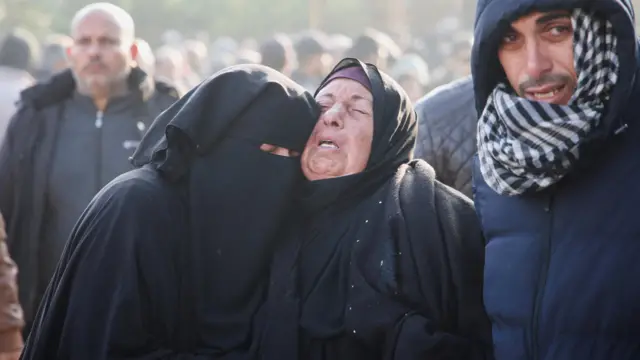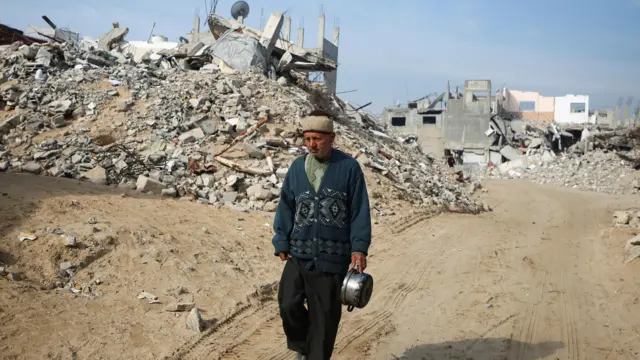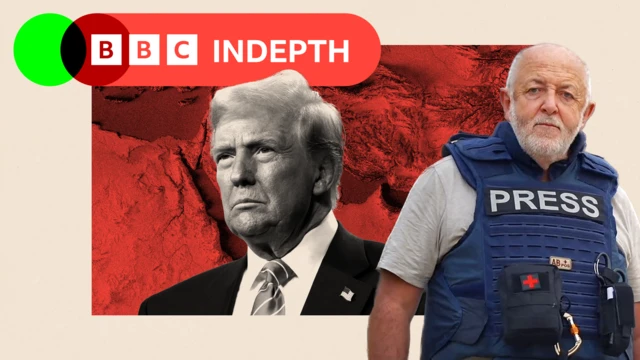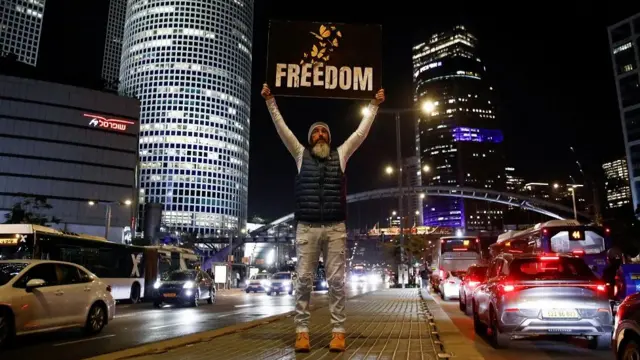Unicef: 'Attacks continue in Gaza... this ceasefire needs to materialise'published at 08:37 GMT 17 January
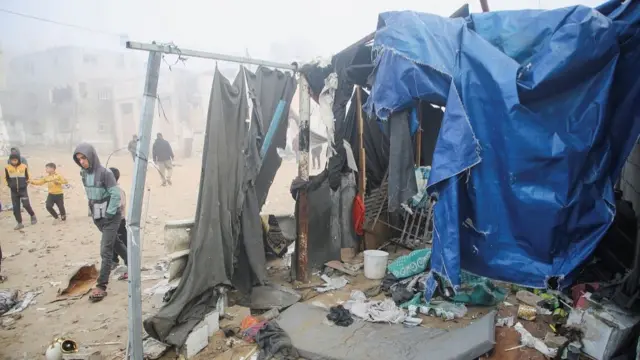 Image source, Reuters
Image source, ReutersPalestinian boys pictured on Friday morning near a damaged tent in Khan Younis, southern Gaza
As we've just reported, the ceasefire may have been signed but air strikes in Gaza have continued, with Gaza's civil defence agency reporting more people killed in the past day.
"I woke up to a familiar sound of buzzing of drones flying over the skies of Gaza", says spokeswoman Rosalia Bollen, spokeswoman for the UN's children’s agency Unicef.
Bollen tells BBC Radio 4's Today programme the ceasefire deal was met with great joy in Gaza "but in the meantime attacks have continued, air strikes have been reported with dozens of people reported killed".
"So this ceasefire still needs to materialise," she says - and that returning children to their homes will be one of the first things Unicef wants to do when the ceasefire comes into effect.
